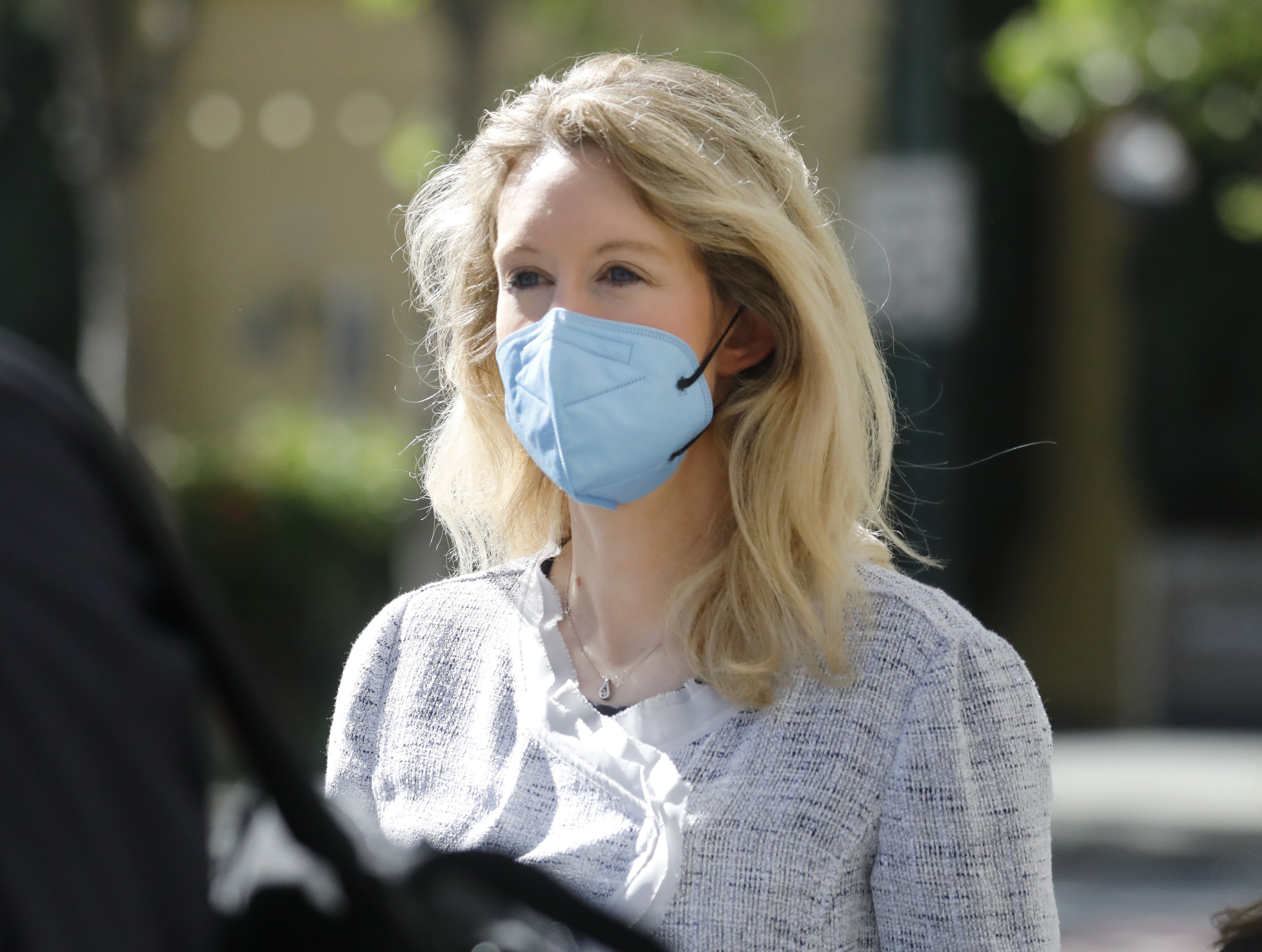SAN JOSE, CALIF. – The pool of potential jurors in the criminal fraud trial of embattled Theranos founder Elizabeth Holmes was cut on Wednesday after her attorneys and federal prosecutors identified some were biased, according to the completed questionnaires.
“Thirty to forty of the remaining jurors have consumed substantial, and I mean lengthy extrajudicial material, about the case and about the defendant,” Kevin Downey, an attorney for Holmes, told the judge. “We’re very vulnerable to any of the jurors commenting in some ways as either the court or lawyers conduct voir dire about the content of the media they’ve seen.”
Voir dire is the legal term for preliminary examinations of jurors.
Holmes appeared in court as her defense attorneys renewed their request to individually question potential jurors. Dozens of jurors were dismissed for reasons ranging from potential bias, hardships and health or language issues.
Defense attorneys identified more than 30 jurors who they say have been exposed to “long form prejudicial publicity” relating to Theranos.
“Less than half of the individuals that filled out the questionnaire had prior exposure to Holmes and Balwani,” Assistant U.S. Attorney Jeffrey Schenk said, referring to Ramesh “Sunny” Balwani, the former Theranos COO who also faces charges. “One juror saying something during the voir dire process that could be overheard is a risk in every court case.”
Attorneys for Holmes have previously expressed concern about what they cite is widespread “inflammatory” media coverage, asking the court for an expanded jury selection. In an earlier court filing, attorneys did a comprehensive search of news articles and other media which generated 462,000 entries. Among them included 3,755 results of “Negative Personal News,” and 2,862 results of “Negative Business News.”
Other jurors who were excused include a person who said they “knew people who lost money” in Theranos. Another was interviewed for a job at Theranos and a third applied to work there, according to the questionnaires.
Another excused juror sat on the grand jury on the 33-count indictment against Holmes and Balwani in 2017.
Holmes, who dropped out of Stanford at 19 to start her own company to revolutionize healthcare, was once named the next big thing of Silicon Valley. Her spectacular rise collapsed in 2018 when a Wall Street Journal investigation exposed Theranos technology didn’t work.
Holmes and Balwani each face a dozen counts of wire fraud and conspiracy. Both have pled not guilty and have denied any wrongdoing.
Jury selection begins on Tuesday. Judge Edward Davila said he plans to bring in 50 potential jurors at a time and conduct voir dire in three separate sessions.
“The search for implied bias might be a futile search,” Davila said, acknowledging the defense attorney’s concerns. “We’ll do the best we can to ensure that those jurors are just focused on the universe of evidence in this courtroom.”
